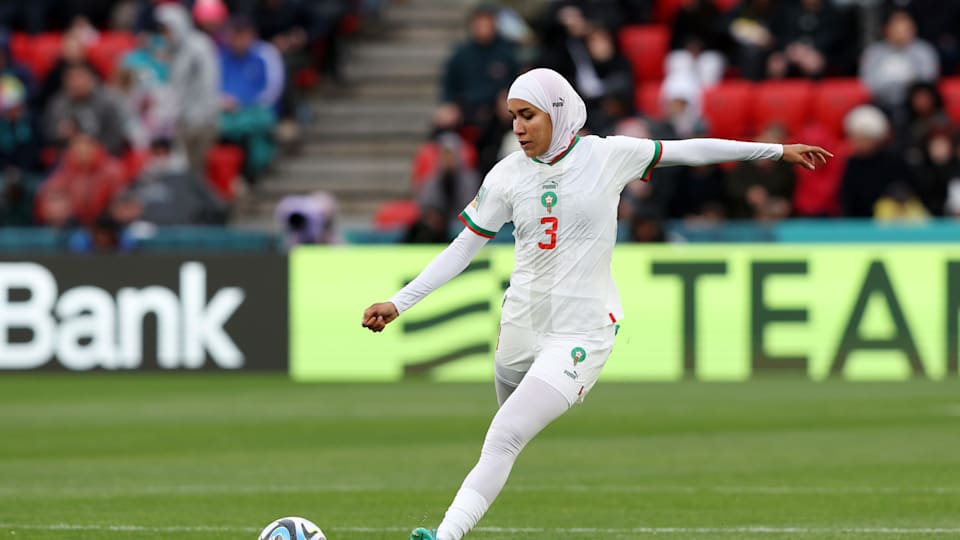
Morocco’s second group stage match at the FIFA Women's World Cup 2023, saw history from the first minute to the last.
Nouhaila Benzina's selection in the North African nation's starting lineup for their clash with Republic of Korea on Sunday (30 July) ensured that at the kick-off she became the first-ever player to wear a hijab in a game in the history of the World Cup.
And by the final whistle in Adelaide, the defender had played a key role a 1-0 win, Morocco's first ever Women's World Cup victory, secured by their first goal at this level, to give them real hope of qualifying for the knockout stage.
“Girls will look at Benzina [and think] ‘that could be me,’” said Assmaah Helal, the Muslim Women in Sports Network co-founder.
“Also the policymakers, the decision-makers, the administrators will say, ‘we need to do more in our country to create these accepting and open and inclusive spaces for women and girls to participate in the game.’”
Before Benzina had even stepped on the pitch, however, she and her team-mates had already written their names in the history books.
This Moroccan side have broken new ground, becoming the first Arab or North African nation to represent on the world stage, in a 6-0 defeat to Germany in their World Cup debut on Monday (24 July).
“We are honoured to be the first Arab country to take part in the World Cup,” their captain, Ghizlane Chebbak, had said.
“We feel that we have to shoulder a big responsibility to give a good image, to shop the achievements the Moroccan team has made.”
Benzina was brought in to shore up the defence following that Germany defeat, and this win over Korea thanks to a goal from Ibtissam Jraidi means their final game in Group H, against Colombia on Thursday (3 August) is one where a win could guarantee them a place in the last 16 for the first time.
